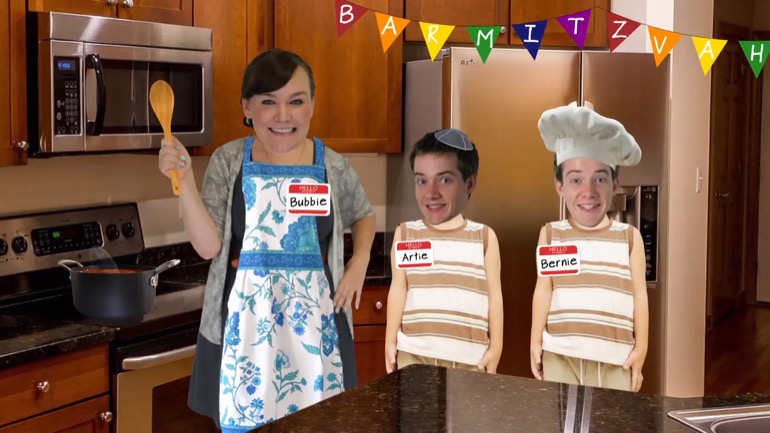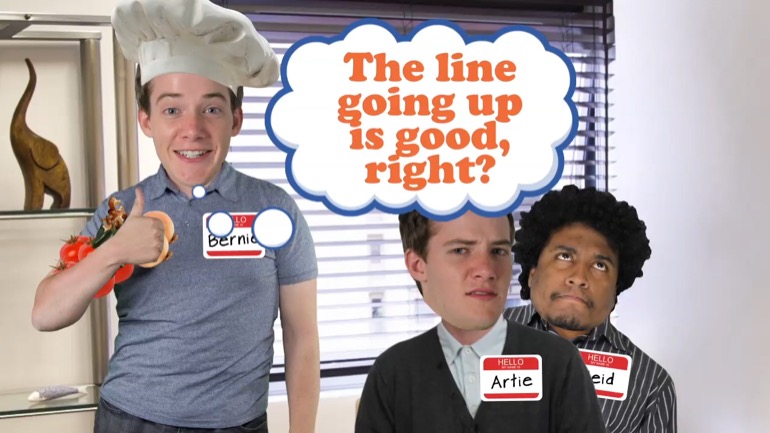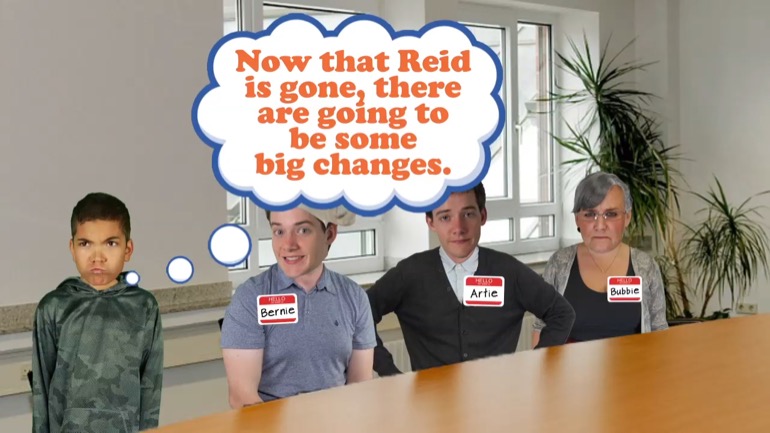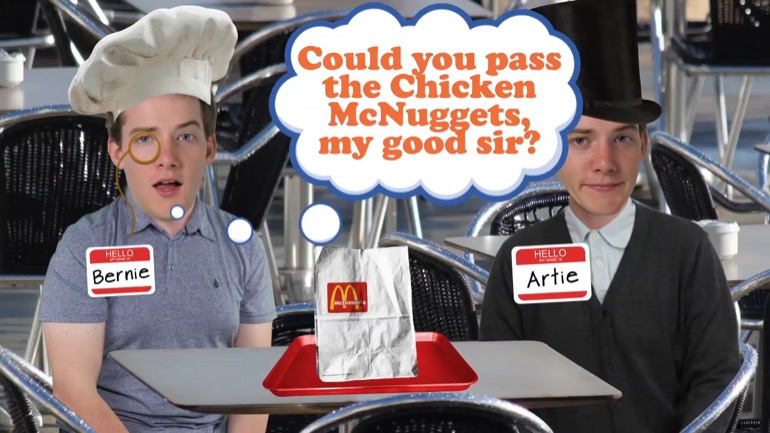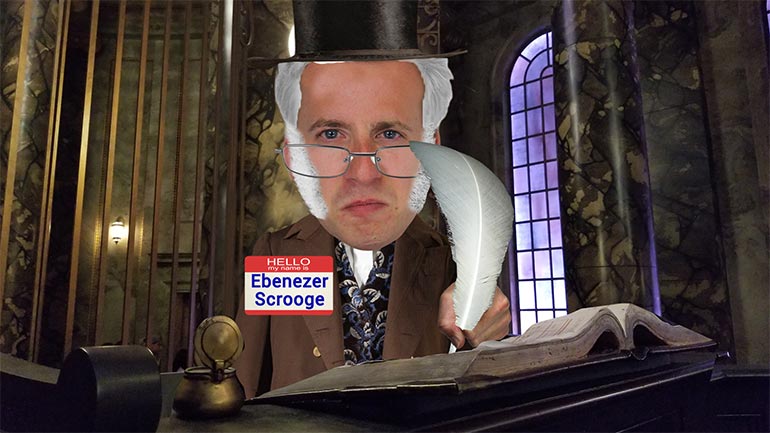ShmoopTube
Where Monty Python meets your 10th grade teacher.
Search Thousands of Shmoop Videos
Finance Videos 1063 videos
What is bankruptcy? Deadbeats who can't pay their bills declare bankruptcy. Either they borrowed too much money, or the business fell apart. They t...
What's a dividend? At will, the board of directors can pay a dividend on common stock. Usually, that payout is some percentage less than 100 of ear...
How are risk and reward related? Take more risk, expect more reward. A lottery ticket might be worth a billion dollars, but if the odds are one in...
Principles of Finance: Unit 1, The IPO Checklist 21 Views
Share It!
Description:
There are many items on the IPO checklist, having to do with earnings, shares, spread, etc. Everyone get your pencils ready.
Transcript
- 00:00
principles of finance a la shmoop. the IPO checklist. short operating
- 00:07
history .no dividends, often no earnings. so why do investors love IPOs so much? [checklist shown]
- 00:14
and because so often the stock prices of IPOs are under priced dramatically on
- 00:20
purpose. the shares zoom upwards that first day of trading in a few cases eBay
- 00:25
Yahoo LinkedIn Tesla and others the stock price is way more than doubled in
Full Transcript
- 00:30
the first day or three of trading. that's the good the bad is that most IPOs are [charts]
- 00:35
actually terrible, but investors love lottery tickets and they'll keep putting
- 00:39
5 bucks on red 32 on the roulette wheel until somebody forces them to you know
- 00:44
stop. so why do i POS zoom? well a lot of it is about unknowns. investment banks
- 00:50
technically owned the entire company for a brief moment in time and they don't
- 00:54
like to take a risk before they turn around and sell it to the public. think
- 00:57
about it. works like this. the bank is taking the company public and they buy [flow chart]
- 01:01
all the shares it's selling to the public for let's say 15 dollars and 50 cents a
- 01:06
share, and like five minutes later they turn around and dump them at sixteen
- 01:10
bucks. 50 cent spread their got it if the bank has done a great job marketing the
- 01:15
IPO to mutual funds and hedge funds and private investors buying them
- 01:19
well then demand for those shares is often a multiple of the supply of those
- 01:23
shares available to buy. got it ?demand higher than supply so stock prices go up.
- 01:28
alright and this is not done by accident or out of the banks kindly goodwill. by [man gives presentation]
- 01:32
having demand 3 for 20 times the supply the certainty that the bank will be able
- 01:38
to fully sell out all of its shares that it bought for 15 .50 or whatever the
- 01:43
price was will be very high. and in most IPO deals there is what's called a
- 01:48
greenshoe option, or over allotment option for the bank. that is if the bank
- 01:54
is supposed to be selling 10 million shares of a given company.com in an IPO [flow chart]
- 01:59
well the bank has the option to sell 12 million shares if the demand is there to
- 02:03
give it price. meaning they could sell 2 million more and that's why you'll read
- 02:06
about here about or see on CNBC initial red herring whisper prices that always
- 02:12
start out it's crazy low number like 10 bucks a share
- 02:15
and then magically seemed to creep upwards toward 15.50 well banks start low [definitions on a white board]
- 02:20
gain interest from early adopter investors and if demand is for well 80
- 02:25
million shares on a 10 million share base at 14 bucks while the bank likely
- 02:30
has little risk in raising the final IPO offering price to 15.50 and
- 02:35
having some cheapskates go away so that there is a ventral demand for 60 million
- 02:40
shares at the higher 15.50 going on $16 price and at that price. the bank can
- 02:46
sell 12 million shares instead of 10 million shares and on the margin that's [definitions on screen]
- 02:50
a big deal to the banking team who brought public the company. they're
- 02:54
making 50 cents a share spread on the shares right so on 10 million shares
- 02:58
they make 5 million and well for almost no extra effort or at least very little
- 03:02
extra effort they make an additional million bucks selling 2 million more
- 03:07
shares at 50 Cent's spread in the green shoe effort. and the companies love this [equations]
- 03:11
because they raise more capital at a higher price gives a little more cushion
- 03:15
a little more dough to go by that water fountain with the cores neon sign thingy
- 03:20
in the lobby. alright well note that IPO teams usually
- 03:23
comprised four or five individuals who tap into many resources along the way
- 03:28
mostly in the form of lawyers and accountants and other suit-wearing [man in suit frowns]
- 03:31
bureaucrats. so an extra million bucks goes a long way toward paying the
- 03:35
bonuses of the group at the end of the year, like if you think if you could do
- 03:38
one of those each month yeah that'd be grand. well being able to sell more
- 03:41
shares rather than less is a good thing for the company as we've noted. the [equations]
- 03:45
company has more shares trading in the public market which adds liquidity
- 03:49
making it easier for buyers to buy and sellers to sell the stock. and the big
- 03:54
investors love that. well that liquidity lowers the
- 03:57
transaction costs of trading in the stock, that is like there's lots of
- 04:01
shares so you don't need five cents Commission to keep everyone happy per [flow chart]
- 04:04
share it could be like four cents or three cents but you got a lot of shares
- 04:08
trading it's a lot of spread it's good for all the traders and that transaction
- 04:11
cost is essentially a tax on the trade and lower taxes are always good for
- 04:16
commerce. I'm looking at you Congress. all right well the heat the bank generates
- 04:20
is good for another reason as well the company had originally budgeted to spend [fire in a pit]
- 04:24
based on a raise ten million chairs at ten bucks are a
- 04:28
hundred million dollars of new capital, but for only modestly more dilution well
- 04:33
they'll have sold 12 million shares at 15.50 net to them -remember the bank sells
- 04:38
it at sixteenth of company keeps fifteen fifty. or said another way they've just [equations]
- 04:42
raised a hundred eighty six million instead of a hundred million and that's
- 04:45
a good thing it'll be a really nice holiday party in year one as a public
- 04:49
company so that's the reward. all right what about the risk ?well there's lots of
- 04:53
it you can imagine a situation where a company is only marginally
- 04:56
oversubscribed like demand for twenty million in their supply of 15 million.
- 05:01
and the bank is unable to raise prices along the journey of its IPO marketing [flow chart]
- 05:06
Roadshow. the bank could in theory find itself holding 10 million shares of
- 05:11
piece-of-crap.com when skittish investors 8 minutes before the IPO
- 05:15
decide to call in sell at any price orders to their traders in many deal
- 05:21
cases. in order to win the IPO the bank has to agree to buy and hold the set of
- 05:26
number of shares itself like as a proprietary trading in its own coffers
- 05:30
the bank's money is at risk. so if the deal was bought by the bank at 10 bucks [flow chart]
- 05:35
a share and it sold down to 5 bucks a share and by the way people that's about
- 05:39
what happened to Amazon on its IPO. while the bank could be left holding a heavy
- 05:44
lead filled bag in the ocean and oh by the way that's also not good for the
- 05:49
clients of the bank who rely on it to only give them "good deals" in quotes and
- 05:54
we chuckle at that. a few piece-of-crap.coms and while most banks capital [man gives presentation]
- 05:58
markets teams are out of business.
Related Videos
GED Social Studies 1.1 Civics and Government
What is bankruptcy? Deadbeats who can't pay their bills declare bankruptcy. Either they borrowed too much money, or the business fell apart. They t...
What's a dividend? At will, the board of directors can pay a dividend on common stock. Usually, that payout is some percentage less than 100 of ear...
How are risk and reward related? Take more risk, expect more reward. A lottery ticket might be worth a billion dollars, but if the odds are one in...











































































